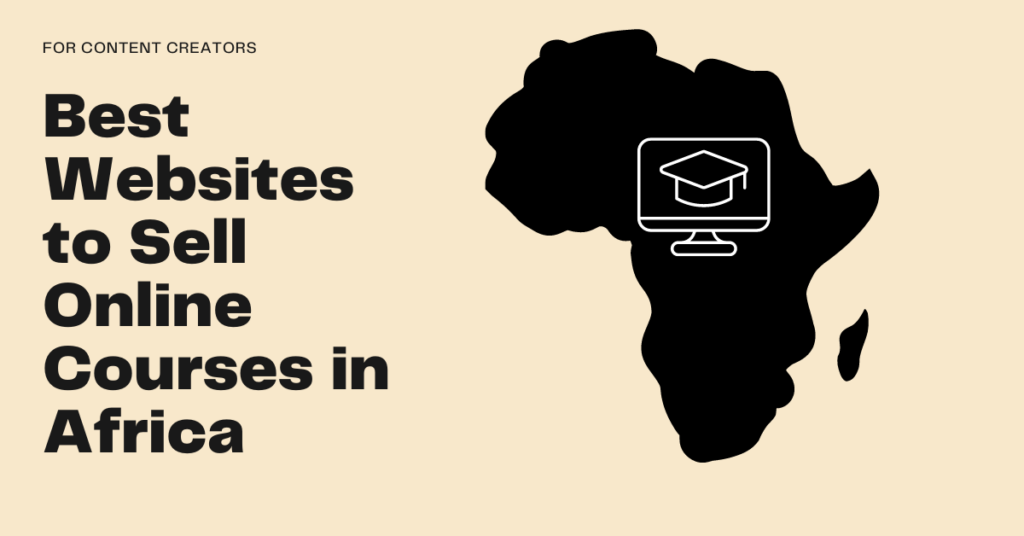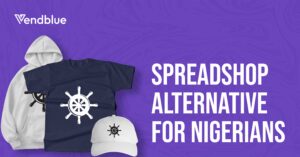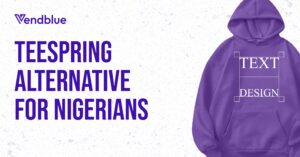The digital era is reshaping education globally, and Africa is at the forefront of this transformation. Online courses are becoming an increasingly valuable tool for educators to expand their reach and impact.
This is especially true in Africa, where access to traditional educational resources is often limited. Such platforms offer effective and scalable learning opportunities.
Here is a guide to the best websites for selling online courses in Africa, which will help course creators choose the right platform to connect with eager learners and establish a successful education business.
Why sell online courses?
There are numerous benefits:
The market is vast. This opportunity opens up doors for creators to tap into the market further and beyond geographical limits.
- Passive Income: Once developed, courses can generate revenue repeatedly without additional effort, creating a sustainable income stream.
- Flexibility: Educators can design courses around their expertise and schedule, offering both synchronous and asynchronous learning options.
- Personal Branding: By sharing knowledge, educators can build their reputation and establish themselves as thought leaders in their fields.
Top Platforms for Selling Online Courses in Africa
Vendblue
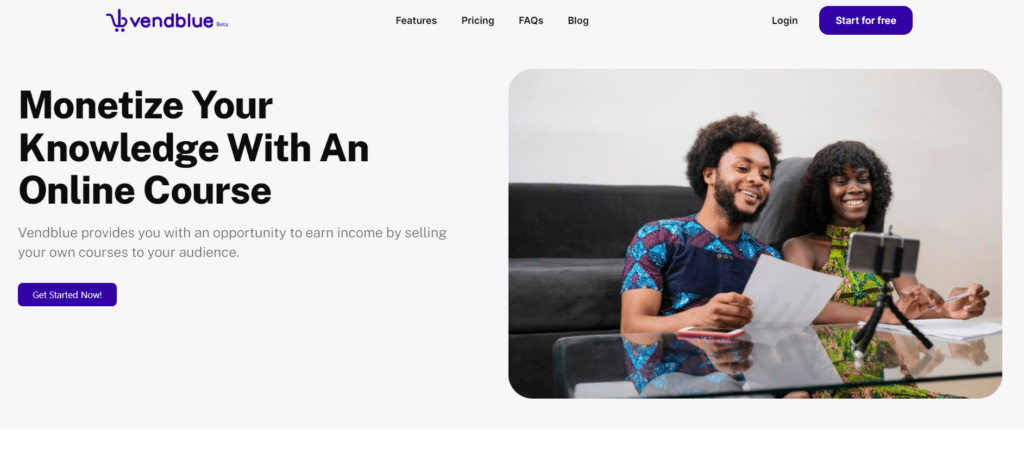
Vendblue is emerging as a powerhouse tailored specifically for the African market. It simplifies the process of creating and selling online courses by providing user-friendly tools that require minimal technical skills. Here’s why it stands out:
- Localized Features: Vendblue offers payment solutions that cater to local currencies and preferences, which is a significant advantage in markets where international payment methods are less common.
- Learning Management Tool Building Tools: Besides course creation, Vendblue helps educators build cohesive tools that facilitate the learners’ experience.
- Pros: Ideal for those starting out or with a limited budget as it offers a free entry point and a revenue-sharing model that scales with your success.
Udemy
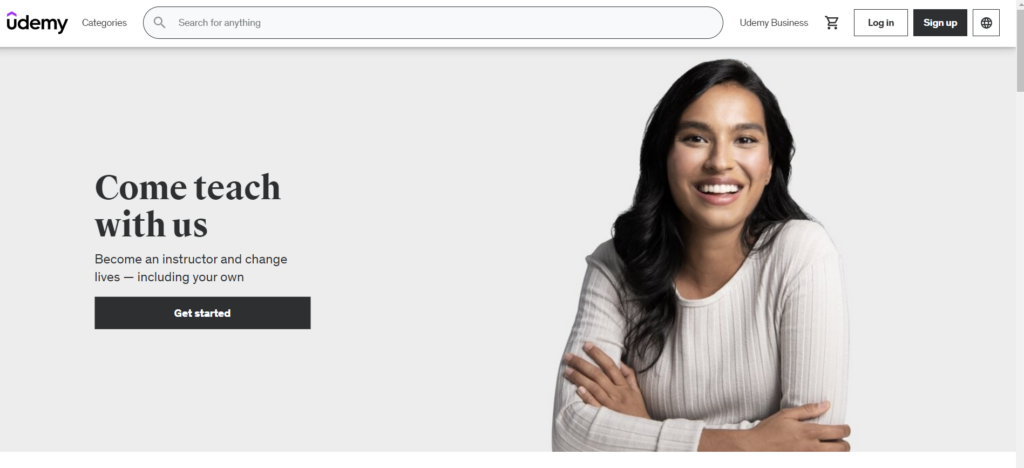
Udemy is one of the largest learning platforms globally, and its reach extends robustly into Africa. It provides an extensive array of tools to create, market, and sell courses to an international audience.
- Global Marketplace: Access to millions of potential students worldwide increases the likelihood of course uptake.
- Extensive Support Resources: Udemy offers comprehensive support for course creators, including promotional tools and insights into student engagement.
- Pros: Massive audience reach; established trust and brand recognition.
- Cons: The platform’s revenue-sharing model and competitive marketplace might reduce potential earnings.
Teachable
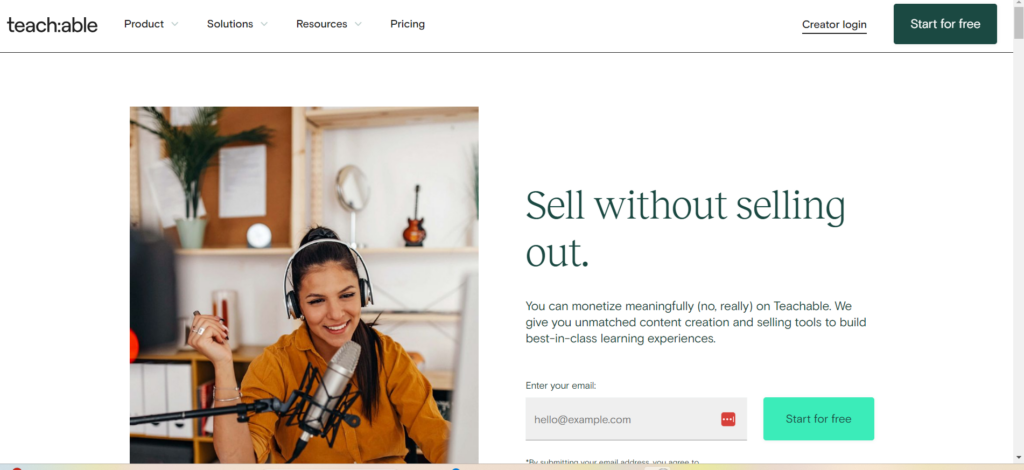
Teachable allows educators to craft and sell highly customized online courses. Its platform is geared towards individual educators and small businesses looking to expand their educational offerings.
- High Customization: Tailor every aspect of the course, from the landing page to pricing, to fit your brand and pedagogical approach.
- Direct Sales Control: Unlike platforms that act as intermediaries, Teachable puts you in direct contact with your students, enhancing relationships and retention.
- Pros: Strong tools for branding and marketing; control over pricing.
- Cons: Higher upfront costs and a need for personal marketing efforts can be challenging for newcomers.
Kajabi
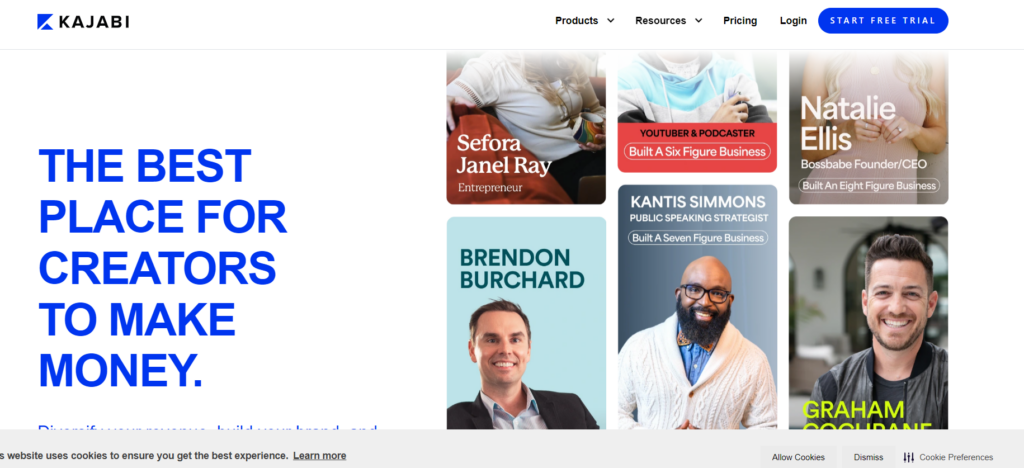
Focused on providing a premium experience, Kajabi is another excellent choice for course creators in Africa who want a platform that supports local payment methods and offers robust marketing tools.
- Niche Market Focus: Ideal for creators looking to offer specialized courses.
- Integrated Marketing Tools: Comprehensive tools to automate marketing, from email campaigns to SEO optimization.
- Pros: Strong support for non-technical users; excellent for building a professional online presence.
- Cons: Higher cost, which may be a barrier for those just starting out.
Choosing the Right Platform
When selecting a platform, it’s essential to balance your needs with what each platform offers:
- Audience Reach vs. Niche Focus: Decide whether a broad or targeted approach suits your course content and teaching style.
- Ease of Use vs. Customization: Consider how much time and skill you are willing to invest in setting up and maintaining your courses.
- Cost vs. Return on Investment: Evaluate how platform costs will impact your potential revenue.
Conclusion
Africa’s online education market is thriving, offering significant opportunities for educators. As digital access improves, there’s a growing demand for educational content tailored to local needs. Selecting the right platform is crucial for reaching and engaging a broad audience effectively.
The best platforms provide tools that support interactive learning and are compatible across devices, ensuring quality educational experiences.
They should also accommodate local languages and offer scalable payment options to make learning accessible to all. By choosing wisely, educators can not only extend their reach but also contribute to educational equity across the continent, fostering a sustainable educational business.

